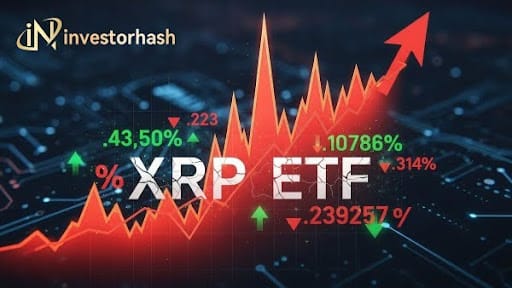Bitcoin Community Responds to Australian Politician's "You Can't Eat Bitcoin" Comments

Australian Senator Gerard Rennick sparked widespread controversy within the Bitcoin community on May 23, 2025, after publishing social media comments calling Bitcoin a "Ponzi scheme" and questioning its value because "you can't eat Bitcoin." The Cointelegraph reports these remarks came just one day after Bitcoin reached a new all-time high of $111,970 on May 22. Rennick, who represents Queensland and leads the People First Party, argued that Bitcoin produces "absolutely nothing" and criticized institutional investment flows into the cryptocurrency.
The senator's comments targeted BlackRock's investment strategy, claiming the asset manager would "pump more and more dollars into a supply constrained product." Rennick dismissed the thousands of people buying and selling Bitcoin, stating Australia "needs real engineers not financial engineers." His statements drew immediate criticism from cryptocurrency advocates and industry representatives across Australia.
Australian Bitcoin Industry Responds to Political Criticism
The Australian Bitcoin Industry Body quickly condemned Rennick's statements, arguing they demonstrated a fundamental misunderstanding of Bitcoin's purpose and potential. According to Bitcoin Ethereum News, the organization warned that such misrepresentation could lead to harmful policy decisions that stifle innovation. The group emphasized that the debate extends beyond whether Australians can use Bitcoin, focusing instead on whether the government understands how cryptocurrency can drive innovation and build long-term economic resilience.
Several cryptocurrency commentators compared Rennick's logic to dismissing the internet because it cannot be consumed. The senator defended his position by stating he felt no obligation to explain his views, describing community reactions as "pathetic" because Bitcoin advocates seek reassurance from politicians they claim to want freedom from. This exchange reflects broader tensions between cryptocurrency proponents and traditional political establishments worldwide.
Australia currently maintains a complex regulatory environment for digital assets. CoinDesk reports the government announced plans in March 2025 to integrate digital assets into the broader economy through new regulatory frameworks. The Treasury's white paper outlined intentions to embrace tokenization, real-world assets, and pilot tokenized money trials while introducing licensing structures for crypto exchanges.
Record Bitcoin Performance Drives Institutional Investment
Bitcoin's price surge to $111,970 represents continued momentum from institutional adoption and favorable market conditions. Reuters attributes the latest record high to improving risk sentiment following previous market volatility. The cryptocurrency has maintained strong performance throughout 2025, with analysts targeting potential prices of $150,000 by year-end based on historical four-year cycles following Bitcoin halving events.
BlackRock's iShares Bitcoin Trust continues driving institutional adoption with over $51 billion in assets under management. 99Bitcoins reports the fund has experienced sustained inflows, with the asset manager recommending modest 1-2% Bitcoin allocations for portfolio diversification. This institutional interest contradicts Rennick's characterization of Bitcoin as purely speculative, as major financial institutions integrate cryptocurrency exposure into traditional investment strategies.
Recent data shows Bitcoinist Australian cryptocurrency adoption has reached 32.5% of the population, representing approximately 6.3 million people. This adoption rate increased substantially from previous years, with over 57% of crypto holders reporting profits in 2025 compared to 37% in 2024. Long-term investors holding cryptocurrency for more than six years achieved 73.5% positive returns, suggesting strategic patience benefits cryptocurrency investors.
Global Political Reactions Shape Cryptocurrency Landscape
Rennick's comments reflect broader political divisions regarding cryptocurrency regulation across democratic nations. Similar conflicts have emerged in the United States, where CNN Politics reports Senate Democrats blocked cryptocurrency legislation amid concerns over potential conflicts of interest. These political tensions demonstrate ongoing challenges facing cryptocurrency integration into traditional financial systems.
The controversy surrounding political figures and cryptocurrency extends beyond individual opinions to regulatory frameworks affecting entire industries. Australia's position becomes particularly relevant as neighboring countries develop comprehensive digital asset strategies. Singapore and the European Union have established clear regulatory frameworks, while Australia continues developing its approach through consultation and pilot programs.
This political friction occurs during unprecedented institutional cryptocurrency adoption globally. Traditional financial institutions increasingly view Bitcoin as a legitimate asset class rather than speculative investment. The disconnect between political rhetoric and market reality creates regulatory uncertainty that could impact Australia's position in the global digital economy.
Cryptocurrency advocates argue that dismissive political attitudes risk positioning Australia behind other developed nations in blockchain innovation and digital finance. The sector's rapid growth requires informed policy discussions rather than blanket dismissals based on fundamental misunderstandings of the technology's potential applications and economic benefits.
Related Reading on BTC Peers
Read the Global Bitcoin Policy Index (GBPI) to understand how different countries approach Bitcoin regulation and policy. This comprehensive analysis examines regulatory frameworks worldwide, helping readers understand the varying approaches governments take toward cryptocurrency adoption. The article provides valuable insights into policy trends, regulatory best practices, and how different jurisdictions balance innovation with consumer protection in the rapidly evolving digital asset landscape.




